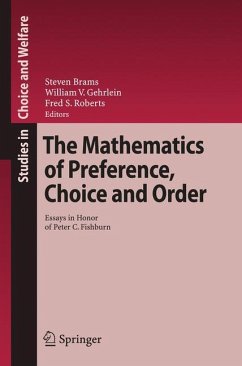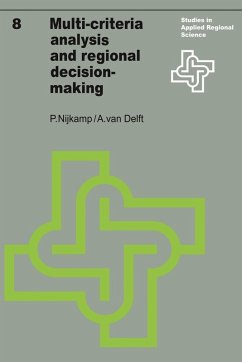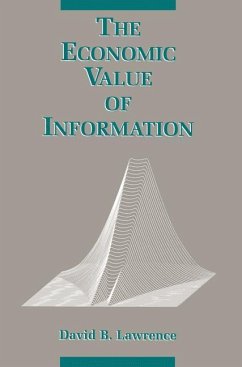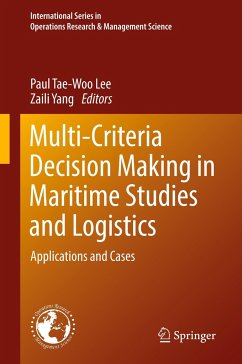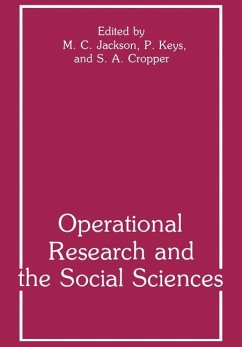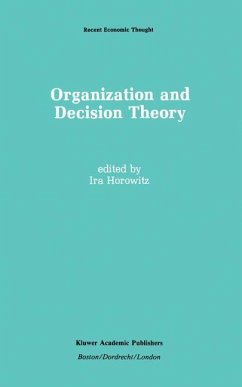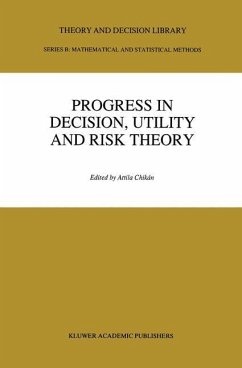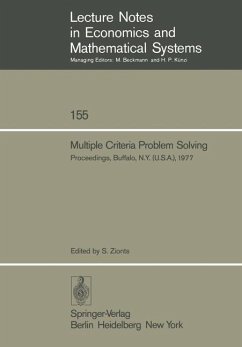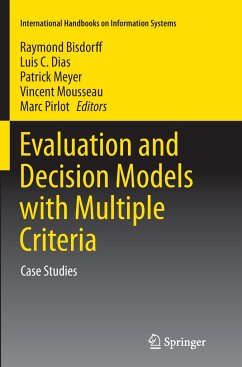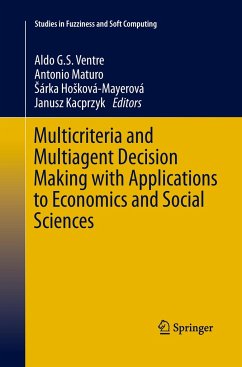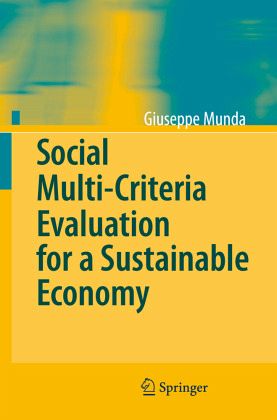
Social Multi-Criteria Evaluation for a Sustainable Economy
Versandkostenfrei!
Versandfertig in 6-10 Tagen
76,99 €
inkl. MwSt.
Weitere Ausgaben:

PAYBACK Punkte
38 °P sammeln!
One of the main novelties of this book is its establishment of a clear relationship between social and public choice on one hand and multiple criteria decision analysis on the other. This relationship leads to the new concept of Social Multi-Criteria Evaluation (SMCE). SMCE is proposed as a policy framework to integrate different scientific languages, for example, when concerns about civil society and future generations have to be considered along with policy imperatives and market conditions.
The real world is characterized by deep complexity. May be a rather unremarkable observation, yet it has important implications on the manner policy problems are represented and decision-making is framed. Is contemporary democracy compatible with science in real-world policy-making? This book gives answers in the affirmative. It also asserts that this congruence can have positive implications not only in terms of economic prosperity but also when dealing with the difficult sustainability policy problems of our millennium. To address contemporary issues economic science will have to expand its empirical relevance by introducing more and more realistic assumptions to its models. One of the most interesting research orientations in recent times in the field of public economics is the explicit attempt to take account of political constraints, interest groups and collusion effects. One of the main novelties of this book is its establishment of a clear relationship between social and public choice theories on one hand, and multiple criteria decision analysis on the other. The pioneering research developed by Arrow and Raynaud (1986) has shown that the relationships between multi-criteria decision theory and social choice are clear and relevant. The main directions of cross-fertilization between these research fields are twofold: 1. Multi-criteria decision theory can be an adequate framework for applied social (and public) choice. 2. Social choice can produce interesting theoretical results for ensuring the ax- matic consistency needed by multi-criterion aggregation conventions.




